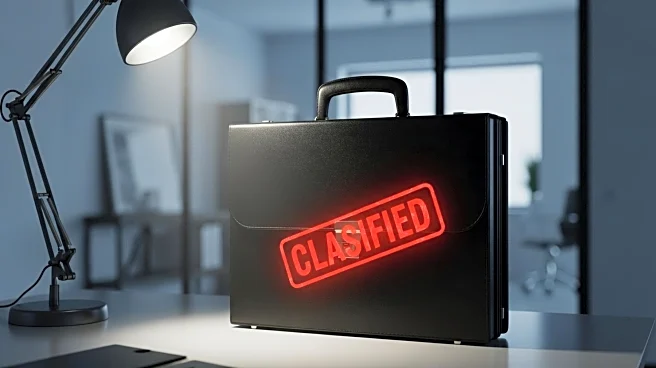What's Happening?
FBI agents conducted a court-authorized search of former national security adviser John Bolton's Washington, D.C., office, discovering documents marked as classified. The inventory included references to weapons of mass destruction and U.S. diplomatic work at the United Nations. The search, approved by U.S. Magistrate Judge Moxila Upadhyaya, also extended to Bolton's Bethesda residence, where computers and electronic devices were seized for forensic review. The investigation is part of a broader scrutiny of Bolton's handling of sensitive national security information, echoing concerns from his 2020 memoir. The Justice Department will decide on potential criminal charges based on the findings.
Why It's Important?
The discovery of classified documents in Bolton's office raises questions about the accountability of senior national security officials in handling sensitive material. It highlights the consistency of Justice Department enforcement in high-profile document probes, especially following investigations into President Trump and President Biden. The case could have political implications, given Bolton's role as a prominent Trump-era official and critic. Ensuring the protection of national defense information remains a critical concern, and the outcome of this investigation may influence future policies and enforcement actions.
What's Next?
The FBI and intelligence agencies will conduct a forensic review of the seized files and devices to assess the potential national security risk. Based on these findings, the Justice Department will decide whether Bolton's conduct warrants criminal charges under statutes like the Espionage Act or other actions. The process is expected to unfold amid political scrutiny over the handling of classified records by senior officials.










